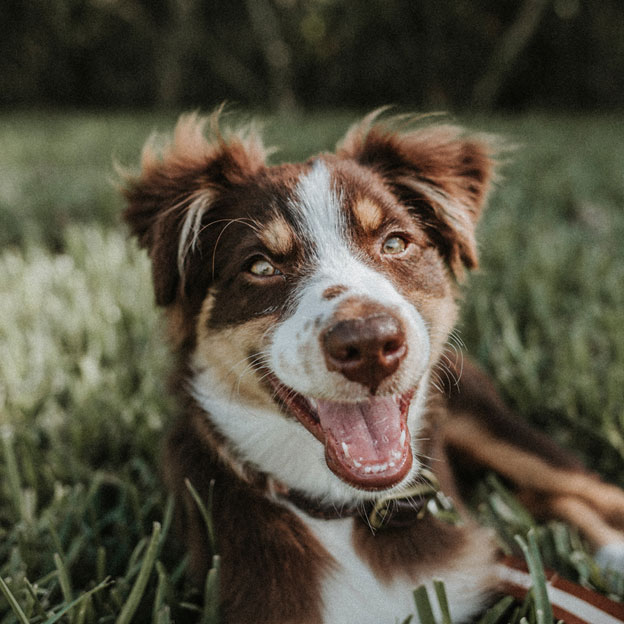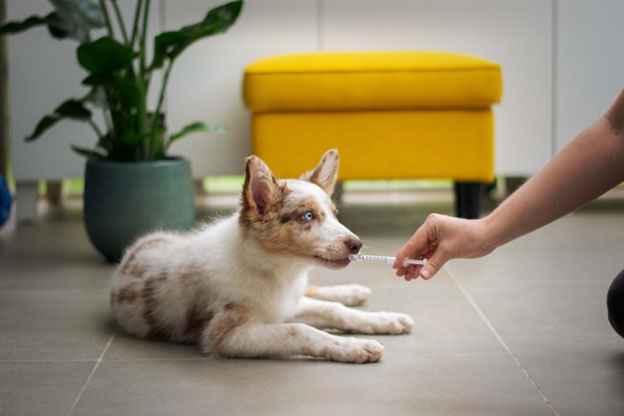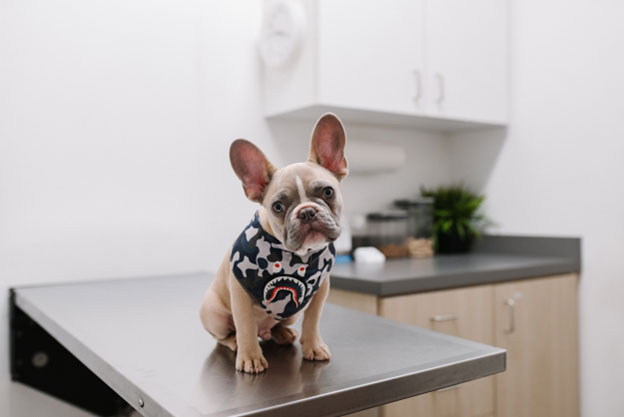Dogs are known for their keen sense of smell, and a wet nose is often a sign of good health. However, if you're wondering why is my dogs nose running, it could be an indication of a problem.

In this article, we will explore the most common reasons why a dog's nose might be running. We will discuss the different types of nasal discharge, the symptoms to look out for, and the treatment options available. By the end, you'll have a better understanding of what might be causing your dog's runny nose and what you can do to help.
Background Info About Dogs' Superior Sense of Smell
Dogs are known for their remarkable sense of smell. They have more than 220 million olfactory receptors in their noses, compared to our 5 million, allowing them to detect scents that we can’t even begin to imagine. This superior sense of smell helps them in many ways, from being able to track down food and predators, to being able to recognize the scent of their owners from a distance.
Runny Noses in Dogs: Why Is My Dog's Nose Running?
Runny noses in dogs are a common issue that can be caused by a variety of factors. Some of the potential causes of a runny nose in dogs include allergies to environmental irritants, seasonal allergies, nasal mites, foreign bodies, bacterial, viral, or fungal infections, dental disease, benign tumors, or even cancerous nasal tumors.
A runny nose in dogs can be accompanied by other symptoms such as noisy breathing, loss of appetite, bad odor, a change in body temperature or sense of smell, eye discharge, and nosebleeds. If you notice any of these symptoms, it's crucial to seek veterinary attention as soon as possible.
If your dog has a persistent runny nose, this could be an indication of a more serious issue that requires treatment. This is especially true if your dog is prone to respiratory infections or has a history of medical issues. A physical examination may be necessary to determine the underlying cause, and in some cases, additional testing such as allergy testing or imaging may be required.
It's important to remember that a runny nose in dogs should not be ignored. Seeking prompt veterinary attention can help prevent complications from developing and ensure that your furry friend receives the appropriate treatment. The treatment options for a runny nose in dogs can vary depending on the underlying cause and the severity of the symptoms. Antifungal medications, antibiotics, or even radiation therapy may be necessary in some cases.
Common Causes of Runny Noses in Dogs
A runny nose in dogs can be a common occurrence and may be caused by a variety of factors. Here are some of the most common causes of runny noses in dogs:
Allergies and Irritants: Environmental allergens such as pollen, mold, and dust can cause a runny nose in dogs, just as they can in humans. Additionally, exposure to irritants such as cigarette smoke or harsh cleaning products can also lead to a runny nose in dogs.
Infections: Various infections, such as kennel cough or canine influenza, can cause a runny nose in dogs. These infections are typically highly contagious and can spread rapidly among dogs who are in close contact with each other.
Foreign Objects or Blockages: If a foreign object, such as a stick or a piece of food, becomes lodged in a dog's nasal passage, it can cause a runny nose. Additionally, blockages due to growths or tumors can also lead to nasal discharge.
Dental Issues: Tooth decay or abscesses can cause a runny nose in dogs, particularly if the sinuses become infected.
In conclusion, a runny nose in dogs can be caused by a wide variety of factors. If you notice your dog's runny nose persists for several days or is accompanied by other symptoms, such as loss of appetite or lethargy, it's important to seek veterinary attention to determine the underlying cause and begin appropriate treatment.
Home Remedies and Treatments for Runny Noses in Dogs
If your dog has a runny nose, there are several home remedies and treatments that can help alleviate their symptoms. Here are some options:
1. Provide Hydration: It's important to keep your dog hydrated by providing plenty of water. This can help loosen any mucus in their nasal passage and prevent dehydration. In addition, you can offer chicken broth or bone broth to help boost their immune system and keep them nourished.
2. Use a Humidifier: Using a humidifier can help moisten the dry air in your home, which can be beneficial for dogs with runny noses. This can help soothe their nasal passages and make it easier for them to breathe.
3. Clean the Nose: You can clean your dog's nose with a damp cloth or saline solution. Gently wiping away any discharge can help prevent further irritation and infection. Be sure to use a clean cloth each time and avoid using any harsh chemicals or substances.
4. Administer Medications: Your veterinarian may prescribe antibiotics or antihistamines to help treat a runny nose in your dog. Be sure to follow their instructions and administer the medications as directed. In addition, you can also try using natural remedies such as honey or Echinacea to boost your dog's immune system.

Overall, the key to treating a runny nose in dogs is to keep them hydrated and comfortable. By following these home remedies and treatments, you can help alleviate your dog's symptoms and promote healing. However, if your dog's symptoms persist or worsen, be sure to contact your veterinarian for further evaluation and treatment.
Preventing Runny Noses in Dogs
Preventing runny noses in dogs is crucial to their overall health and well-being. Here are some important steps to take:
Regular Veterinary Check-Ups and Vaccinations: Scheduling regular check-ups with your veterinarian is essential in preventing a runny nose in your dog. Vaccinations can protect your dog from various bacterial and viral infections that can cause respiratory issues, such as kennel cough, canine influenza, and canine distemper. Regular check-ups can also help detect any underlying health issues that may be affecting your dog's respiratory system.
Maintaining a Clean Living Environment: Keeping your dog's living environment clean is crucial in preventing respiratory issues that can lead to a runny nose. Regularly cleaning and sanitizing their food and water bowls, bedding, toys, and living space can help prevent the buildup of dust, mold, and other harmful irritants that can cause respiratory problems.
Proper Grooming and Dental Care: Regular grooming and dental care can go a long way in preventing a runny nose in dogs. Keeping your dog's coat clean and free of mats, especially around the face, can prevent the buildup of dirt and other particles that can irritate their nasal passages. Brushing your dog's teeth at least twice a week and scheduling regular dental cleanings can help prevent dental disease, which can also lead to respiratory issues and nasal discharge.
Types of Nasal Discharge in Dogs
When it comes to runny noses, there are three main types of nasal discharge you may observe in your dog: clear/watery, yellow/green, and bloody. Each type can indicate a different underlying cause.
Clear Nasal Discharge
The clear or watery nasal discharge could be caused by allergies, an infection, or a foreign body stuck in the nose. Allergies can cause your dog’s body to produce histamines which can lead to a runny nose. An infection may also be the cause, and this is often accompanied by sneezing and coughing. Finally, if your dog gets something stuck in its nose, such as a grass seed or a small rock, it can cause irritation and lead to a runny nose.
Yellow or Green Nasal Discharge
The yellow or green nasal discharge could be indicative of an infection, such as bacterial or fungal. These types of infections usually cause your dog’s nose to become inflamed and swollen as well as making it runny. Your vet may need to prescribe antibiotics for bacterial infections, or anti-fungal medication if it’s a fungal infection.
Bloody Nasal Discharge
If your dog’s nose is running with bloody discharge, this could be due to a more serious condition such as cancer or a tumor. In these cases, you should take your dog to the vet immediately for diagnosis and treatment.
Symptoms to Look Out For
If your dog's nose is running, there are a few other symptoms you should watch out for. These include sneezing, coughing, nasal congestion, and difficulty breathing. Your dog may also have thick mucus in their nostrils, or it may shake its head excessively due to irritation. In more serious cases, your pup might have a fever and become lethargic.

Conclusion
In conclusion, a runny nose in dogs can be caused by a variety of factors, including bacterial and viral infections, seasonal allergies, nasal mites, foreign bodies, dental disease, and even cancer. Regular veterinary check-ups, vaccinations, and proper grooming and dental care can all help prevent respiratory issues and reduce the risk of a runny nose in dogs.
It is important to pay attention to your dog's symptoms and seek veterinary care if you notice any signs of respiratory distress, such as noisy breathing, loss of appetite, or a change in body temperature. Early detection and treatment of respiratory issues can help prevent more serious health problems down the line.
By maintaining a clean living environment and being aware of environmental irritants, such as tobacco smoke and household cleaning products, you can also help protect your dog's respiratory health and reduce the risk of a runny nose.
In summary, taking a proactive approach to your dog's overall health and well-being is key to preventing respiratory issues and a runny nose. With proper care and attention, you can help ensure your furry friend stays happy and healthy for years to come.
Frequently Asked Questions:
Is a runny nose in dogs always a sign of illness?
No, a runny nose in dogs is not always a sign of illness. In some cases, it can be caused by environmental irritants such as dust or smoke, seasonal allergies, or even dry air. As such, it is important to pay attention to your dog's overall health and look out for any changes in their behavior. If you notice any signs of respiratory distress or if your dog's runny nose persists, it is best to consult your veterinarian for further evaluation and treatment.
Can certain breeds be more prone to runny noses?
Yes, certain breeds of dogs can be more prone to runny noses than others. Breeds with short muzzles, such as Bulldogs, Pugs, and Boxers, tend to have narrower nostrils which can lead to difficulty breathing and an increased risk of respiratory issues. Additionally, flat-faced breeds may be more sensitive to environmental irritants and allergens which can cause a runny nose.

Can over-the-counter cold remedies be used to treat runny noses in dogs?
It is important to never give your dog any over-the-counter cold remedies without consulting your veterinarian first. Some of these medications can have serious side effects and may not be safe for all dogs. If you believe your dog is suffering from a cold or other respiratory issue, it is best to schedule an appointment with your vet for proper diagnosis and treatment.
In addition to medical treatment, you can also help keep your dog's nose clear and free of discharge by maintaining a clean living environment and being aware of environmental irritants.
How long should a runny nose in dogs last before seeking veterinary attention?
If your dog's runny nose persists for more than a couple of days or if you notice any other signs of respiratory distress, such as noisy breathing, loss of appetite, or a change in body temperature, it is best to seek veterinary attention. Early detection and treatment of respiratory issues can help prevent more serious health problems down the line. Your veterinarian may recommend medications or other treatments to help clear up the runny nose and keep your dog healthy.


